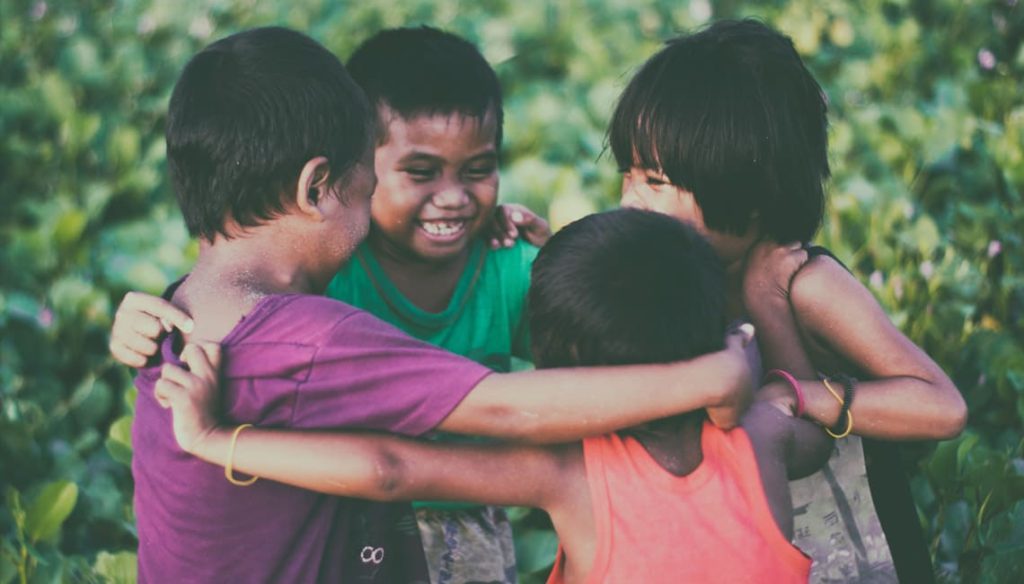
What is ephemeral does not give happiness, but only love satisfies the thirst of the infinite that is in us.
Pope Francisco
In 2013, the Assembly of the United Nations, UN, established the International Day of Happiness, to be celebrated on March 20; a call to all the people and institutions of the world, to recognize happiness as an inalienable right.
The initiative to hold a day of actions around happiness came from the Bhutanese government, which has recognized the value of happiness as an economic paradigm since the 1970s, which they have called: Gross Domestic Happiness Index, FIB, with greater relevance than the Gross Domestic Product, GDP and to calculate it, the following aspects are analyzed: psychological well-being, use of time, the vitality of the community, culture, education, environmental diversity, the standard of living, health and government action.
Various spiritual leaders of the world have reflected on this issue. Brother David Steidl-Rast, a Dominican priest who has dedicated his life to prayer, meditation, and conferences on spirituality in various countries, says that all people have in common the desire to be happy, and a way to achieve it is gratitude.
The gratitude of all the things that we receive in the present moment as if they were a gift and an apprenticeship to act accordingly, even for the great challenges of humanity, such as avoiding violence, oppression, and transforming poverty, is a spiritual practice for which we must prepare ourselves day by day. According to Brother David, the training to achieve the purpose of living in gratitude begins with a method learned from childhood when crossing the street they told us: stop, look and move forward. Only then can we understand what is happening around us and we will have the ability to act. If we live in gratitude, we do not fear, we do not do violence, we accept differences and we act with generosity.
In his book, the Buddhist monk Matthieu Ricard, In Defense of Happiness (2011) encourages us to stop looking for happiness outside ourselves at all costs, learn to look inside ourselves, and prepare ourselves to achieve a meditative and altruistic vision of the world. . The path to happiness requires two core values: kindness and compassion. This famous monk, through various conferences and media documentaries, has shared his advice to live in the best possible way and that is that we must appreciate human life as something precious and give it meaning through our words and actions.
Human life is short and has great potential, we should not waste time on ambitions, possessions, or personal concerns that generate pride, hatred, jealousy, and desires that bring us suffering. According to Ricard, every day we must focus our attention on the cause of suffering. It is a kind of training and from the Buddhist perspective, it is achieved through meditation.
In 2008, Matthieu Ricard underwent a study conducted by the University of Wisconsin in the United States, to study his cognitive processes and analyze his brain activity while he practiced meditation. After several electroencephalograms and magnetic resonance imaging, it was concluded that his brain produced high levels of Gamma waves which are neural oscillation patterns related to awareness, attention, learning ability, and a predisposition for well-being and positive emotions. The media calls him “the happiest man in the world”.
With great discipline, the Buddhist monk has acquired this condition after years of meditation practice, to eradicate all negative thoughts or emotions and see them from a different perspective to prevent them from being harmful. According to scientific studies, meditation serves as a treatment for depression or anxiety.
With regard to the International Day of Happiness, Pope Francis affirms that the search for happiness is something we have in common because it was God who has placed in the hearts of all people an irrepressible desire for happiness. The beginning of joy is to start thinking of others and stop selfishness. To be sad, said the fathers of the desert, is almost always to think of oneself.
When the interior life is enclosed in its own interests and there is no room for others, it does not enjoy the sweet joy of love. It is necessary to overcome the temptation to close in, to isolate oneself, believing oneself to be self-sufficient because we all need brotherhood. Life acquires meaning in seeking the well-being of others and wishing for the happiness of others.
It is not power, money, or fleeting pleasures but love that gives joy. The Pope says that happiness is born from the encounter, from the relationship with others, it is born from feeling accepted, understood, loved, and from accepting, understanding, loving all people. The path of joy also has a sense of humor, knowing how to laugh at things, at others, and at oneself is deeply human, it is an attitude close to grace. Joy is born the human spirit, one becomes able to enlighten other people, with a positive spirit and full of hope. There is no taking it too seriously.
Pope Francis says: one must know how to forgive and ask for forgiveness, he who does not forgive harms himself, above all, hate generates sadness, one must work for peace, those who do so remain in joy, they do not hate, even when they suffer they respond to evil with good. The pope offers the path of prayer so as not to lose hope. Prayer changes reality, it changes our hearts, praying is victory over loneliness and despair. Know how to thank when you see the gifts that are received every day. The wonder of the beauty of life. Sometimes sadness is related to ingratitude being so closed in on oneself as to feel unable to recognize God’s gifts.
In addition to gratitude, another practice to preserve the feeling of happiness is to remember those known moments, in which we were in full joy, where there was no worry about the past or the future, that is, remember how it feels to be happy. They are unique moments of the state of mind that are preserved, even in complicated and difficult moments. As the experts have said, it is about carrying out an exercise, constant practice, and rethinking our priorities, the world in which we live pushes us to always want more without giving us time to think if this tireless search makes us really happy
Change the paradigm of living in lack, always feeling a hole for something that we constantly “need”, for that of abundance, where no matter how much you have, it will always be enough and worthy of appreciation. It is to recognize to always start to see the glass full: stop, breathe, meditate and look for a service project for the common good, because we are interdependent and personal suffering is related to that of other people, therefore, personal transformation and work to create happiness begins by recognizing the infinite individual source that lies in each one and then expands it towards others.
The great spiritual teachers have given important teachings to live fully, to avoid passivity, and find a purpose that contributes to recovering the happiness of all people, especially now that the fateful moments of the pandemic have given way and make way for a new opportunity to revalue life. At Del Pueblo Funeral Home we want happiness to prevail and we remind you that we make the most difficult moments easy.
